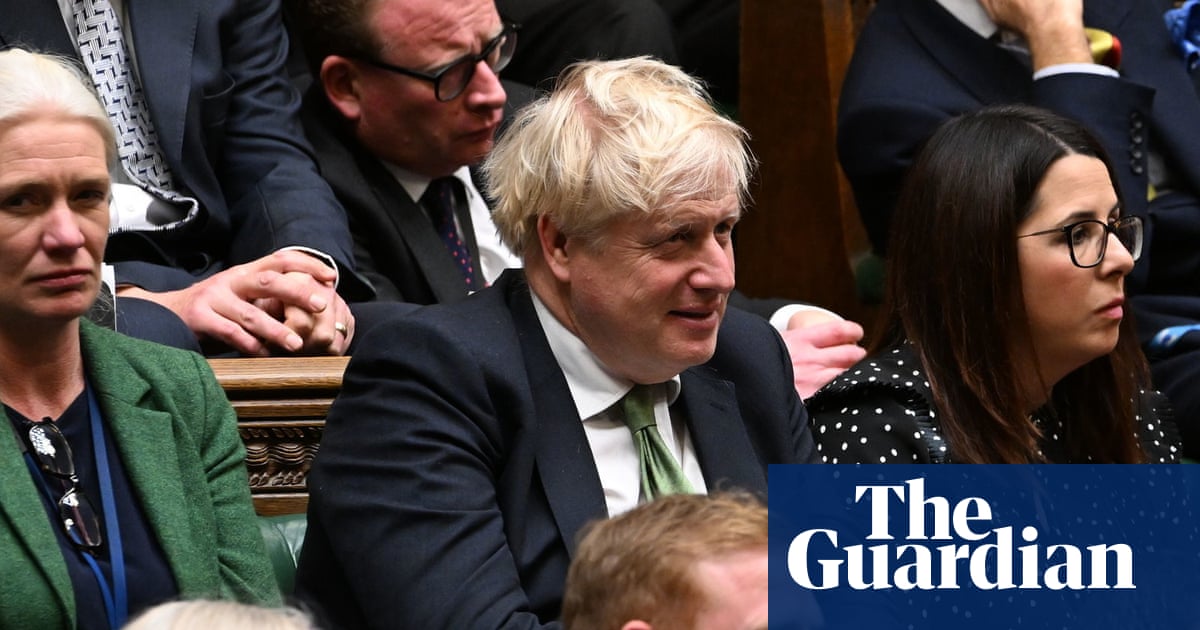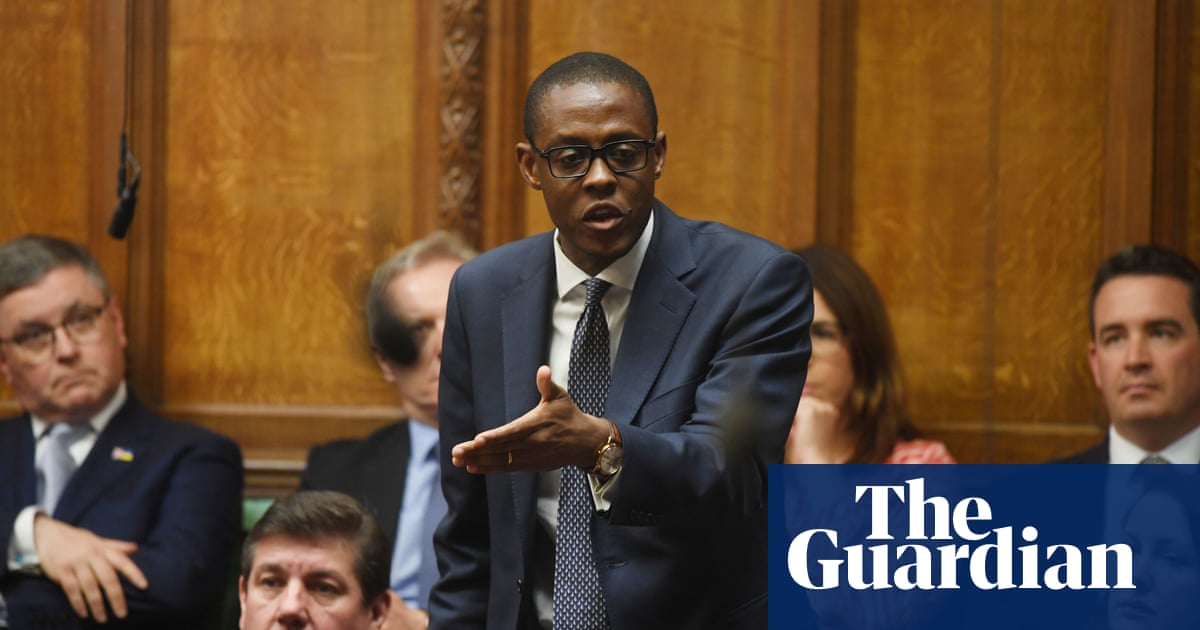
At least 20 Conservative MPs lobbied a committee investigating new rules on second jobs and their behaviour in the Commons chamber, with many saying they strongly disagreed with time limits on outside work.
The revelation came as the Guardian revealed ministers have argued to ditch plans to cap MPs’ earnings from second jobs, months after Boris Johnson himself suggested the curbs amid a sleaze scandal which provoked widespread Tory rebellion.
The pledge to put tighter restrictions on second jobs came amid a public outcry over lobbying breaches by the former MP Owen Paterson, whom MPs were initially whipped to try and protect, and a furore over former attorney general Geoffrey Cox being paid nearly £6m as a lawyer since joining parliament, voting by proxy on days he was undertaking paid work.
Two cabinet ministers, Dominic Raab and Anne-Marie Trevelyan, expressly backed a time limit on second jobs last autumn, suggesting it could be 10-15 hours a week.
But with pressure off Johnson’s premiership because of Russia’s invasion of Ukraine, ministers submitted their view to the Commons standards committee that a time limit or ceiling on such earnings would be “impractical”.
The Labour leader Keir Starmer said Johnson was breaking his promise to the public to tackle second jobs. “He said he was going to deal with second jobs and there was going to be this cap,” he told reporters.
“That was his proposal at the height of this scandal of his own making. Now, as soon as he gets the opportunity, he is breaking his promise yet again. It goes to the heart of the problem with this prime minister, which is this problem of trust and moral authority.”
The Guardian can reveal a number of former cabinet ministers have also expressed concern at the proposals by the Commons standards committee to limit outside earnings, paid political consultancy, and also to introduce new principles of respect in the code of conduct and limit abusive language in the Commons.
Jeremy Wright, the former attorney general, said that “arbitrary time limits” would not address public concern on potential conflict of interest.
“Time spent as a nurse also has the same impact on time available for constituents as time spent as a hedge fund manager,” he wrote. “Again, transparency is the most effective way for constituents to determine whether they find the arrangements of their member of parliament acceptable or not.”
The former transport secretary Chris Grayling also raised concerns about banning MPs from acting as political consultants, saying MPs could take on those role without it influencing their activities in the house.
“The use of the word ‘political’ is very broad ranging and could draw into the proposed restrictions areas of activity which are unrelated to UK parliamentary activity but which can sometimes have a political dimension,” he wrote, citing the example of “working with an international business on environmental strategies across several countries”.
In parliament’s register of members’ financial interest, Grayling declares he earns about £100,000 as a strategic adviser to Hutchison Ports, dedicating “around seven hours” a week to the role.
The skills minister, Alex Burghart, wrote there should be no limit on time. “Members should have to declare how much time they spend on other activities and how much they earn and then it is for their electorate – and no one else – to decide whether they deem that to be acceptable. It would also prove impossible to enforce.”
Dan Poulter, the former health minister who works as a doctor, said any limit would involve “policing an MP’s personal life and free time” and said that was “almost impossible to police, and could result in vexatious complaints against members”.
One letter, submitted anonymously by an MP, said they did not have enough time to absorb complex rules and that any further change to the rules “creates more witch-hunts and fear of which there is already more than enough at Westminster.”
The MP also complained that expense declarations were too onerous for MPs and the consequences of mistaken declarations too great. “The baseline assumption as a new MP, seems to be that I am on the scrounge and should be treated like a child and punished at the first opportunity. If we were treated like adults we would be far more likely en masse to act like them.”
Another anonymous submission said that that it would be “fruitless or over-complicated” to set limits, saying it was “greatly to the benefit of the house” that members keeps their business and professional knowledge through outside work. “It is irrelevant what level of remuneration they receive provided it is transparently declared … it should be a reassuring sign the are highly valued in their field.”
Tory MP Craig Whittaker described the proposed time limits and declaring contracts for second jobs as “more nonsense! Bureaucratic, burdensome and just plain ridiculous” and “another ‘barking mad’ idea!”.
Some MPs also said they strongly opposed new curbs on using Commons offices to do their private work. At the height of the second jobs scandal, Cox was revealed to have used his parliamentary office to make calls with external clients.












